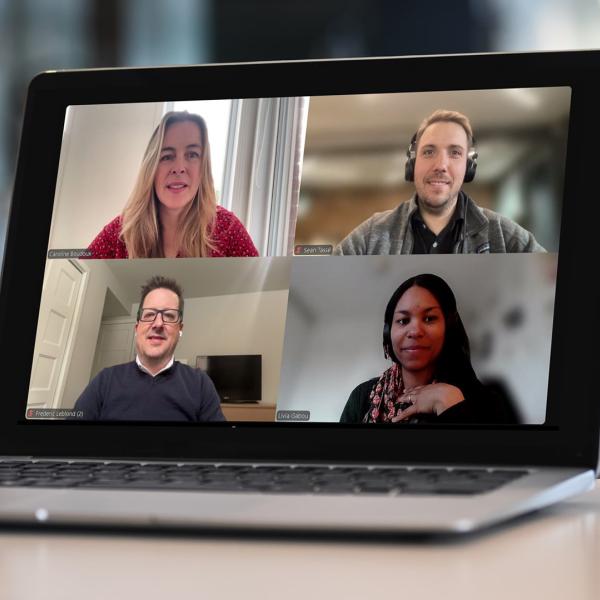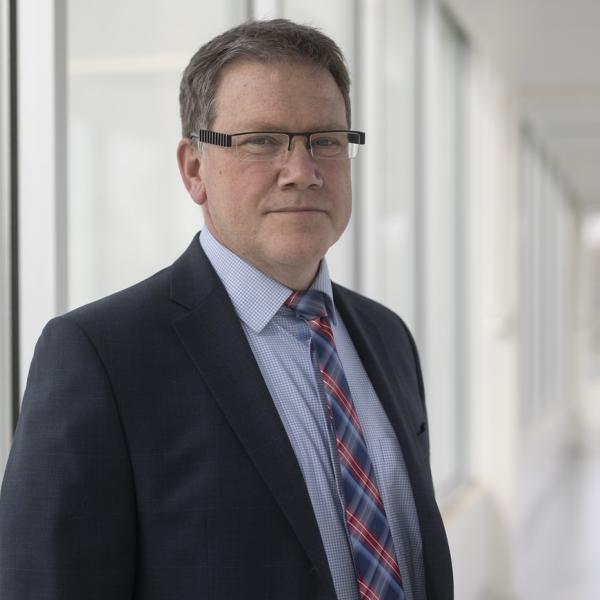Whether you’re a parent helping your first-grader to puzzle through subtraction, or a freshman cramming your way through first-year calculus, mathematics can be a tough subject to get your head around.
In fact, innumeracy rates can be even higher than illiteracy rates in developed countries, which means many adults struggle with calculating a tip for lunch, or extrapolating the yearly cost of services that are billed monthly. According to a C.D. Howe Institute report, Canadian students’ math skills lag behind those of places such as Shanghai, Hong Kong and China and have consistently declined since 2003, with some provinces faring worse than others. So it’s no wonder many of us flinch when faced with fractions.
But love it or hate it, it’s hard to imagine anything that math doesn’t either help to explain or make work, and ever more so in our technology-driven lives. That is in part because of the symbiotic relationship between mathematics and the computers at the heart of not just our everyday devices, but whole industries and areas of inquiry, from banking and computer programming to specialized fields such as medicine and law.
Math is all around us, to paraphrase Mark Lewis, who uses mathematics to model biological systems as a researcher at the University of Alberta and is Canada Research Chair in Mathematical Biology and president of the Canadian Mathematical Society. “There’s a lot of cool mathematics under the hood,” he says, noting that math has a basis in everything from encryption in banking transactions to understanding consumer purchasing behaviour to medical imaging.
“Major increases in our ability to collect data coupled with big leaps in computer power and powerful new mathematics means we can connect mathematics very closely to real-world problems,” he adds.
Take, for example, Chris Bauch, professor of applied mathematics at the University of Waterloo. He and his research team and collaborators at the University of Guelph designed mathematical models that gauge how fears about vaccination, or opinions about climate change, will spread through a population. The models capture interactions between the dynamics of natural systems and the spread of opinions in peer social networks, for instance.
He applies machine learning to tweets about vaccines and climate change to help analyze public perceptions of vaccines that can lead to disease outbreaks. The data includes many millions of tweets that may hold important clues: “Our computer programs listen to the hubbub and chatter on Twitter in order to anticipate certain tipping points that lead to states such as vaccine scares or shifts in attitudes toward climate change.”
By analyzing trends on Twitter and Google, it may be possible to push a population back from the tipping point using public health campaigns.
Bauch’s research has attracted the attention of renowned organizations such as the World Health Organization, the U.S. Food and Drug Administration, and the Bill and Melinda Gates Foundation, some of whom he has collaborated with.
When asked how he came to choose a career in math, Bauch says he originally wanted to become an astronomer and then developed an interest in physics. “And from there I came to math,” he says, noting he was inspired by James Gleick’s book Chaos. It’s considered the first popular book about chaos theory that portrays elements of complicated math in everyday language.
Bauch thinks learning math could be more meaningful for students if it was told as an interesting story, sort of like journalism. “Many researchers take this approach,” he says. “You start with the problem and describe what people have done before you. You build on that previous research, explaining where the field is currently at to motivate why you are doing your study. Then you state your findings, explaining what new knowledge you have added. It’s not exactly like a plot in a work of fiction, but there are some similarities.”
Sarah Plosker, associate professor at Brandon University in Manitoba, agrees. “You go where the facts lead you, uncovering the truth as you go. I want my results to be used by others, so trying to get people interested in the story is important.”
Plosker is the Canada Research Chair in Quantum Information Theory, a fascinating field that could have massive implications both in terms of high-level research as well as in our daily lives. For instance, quantum computers will allow us to perform tasks that aren’t possible with digital computing.
“It will allow for faster performance of computations via quantum algorithms, more efficient ways to transmit data via super-dense coding, and instant communication via quantum teleportation,” she explains.
However, if and when quantum computers become mainstream, current practices that we use to secure the transmission of our online personal information will no longer be valid. For example, making financial transactions over the Internet will be susceptible to the next generation of hacking techniques. We’ll need quantum cryptography to ensure that private transmissions stay private, and that depends on complex algorithms, in other words, math.
Plosker says she was attracted to mathematics and the subject of her current research because the intersection between quantum information theory and math, physics and computer science means it is never mundane — there’s always something new to learn. “I love solving problems and learning new things,” she says.
Her advice to students slogging through a difficult math class? It’s worth the effort. “Arithmetic doesn’t give a good idea of what math research is all about. We don’t sit in our offices and add larger and larger numbers. Once you learn the foundational topics, the focus should be more on deeper learning and to understand the mathematical problem-solving process so you can solve problems you’ve never seen.”





